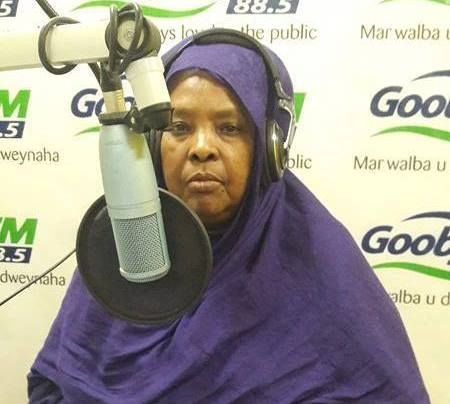Women leaders cautiously optimistic in realising 30% quota in Somalia

Women leaders and representatives from various regions and sectors in Somalia have expressed optimism on the 30% quota allocated to women in both the Upper and Lower Houses but warned the attainment of such standard was no mean feat.
In a heated debate aired on Goobjoog News sister station Goobjoog FM, the leaders noted the constitutional provision to allocate the 30% quota to women in elective positions was progressive but concerted efforts were imperative to realise it.
Batulla Gaballe, the chair of Somali National Women Association underscored the need for women to take the front row in championing and ensuring the provision is met.
“This year Somali women are united and have a strong desire to get all the seats allocated” said Batulla. She noted Somali politics had been dominated by men and it was time for women to be recognized as equally capable in actively participating in nation building.
Fadumo Qasim Dayib who is a presidential candidate for the August polls said the 30% quota was a brilliant idea but was largely theoretical. She however noted consistent efforts could bring to life the provision. “In 2012 women were supposed to get the 30% seats in parliament but we ended up with 14%.
She noted the realization of this provision under the clan based 4.5 system is a tall order noting that it can only be achieved in a democratic system where the general populace get to freely elect their own leaders.
The chair of women in Banaadir region Jawari Barqab shared similar sentiments noting unless women are directly involved in the electoral process the provision could still be a tall order.
“The decision of 30% quota reached in absence of women in 2012 elections scenario could repeated itself again” said Barqab.
A total of 135 elders participated in the election of the 275 member parliament in 2012. However in the August polls 13,750 delegates will elect the 275 members of the Lower House. Each Member of Parliament will be elected by 50 delegated distributed along sub clans.
The Upper House members will be elected by the respective federal member states.
Barqab said women should not only be considered for these seats but should also be involved in political and policy decision making.
Former foreign affairs minister and current Member of Parliament Fawzia Haji Adan sounded optimistic noting the 30% quota is possible and can be attainable in the 2016 elections.
She contends however that the elders have to be pressured to ensure this happens and that the perception of Somali society about women in politics should change.
Asho Anshur, a civil society activist observed women must be included in the electoral caucuses to achieve the 30% quota adding women were even more qualified than men in running the political affairs of the country.
Women associations have not been actively involved in securing the 30% quota but we are more determined than never to see this happen,” said women activist Sahro Sheikh Osman. She noted they are forming women committees to champion this course.